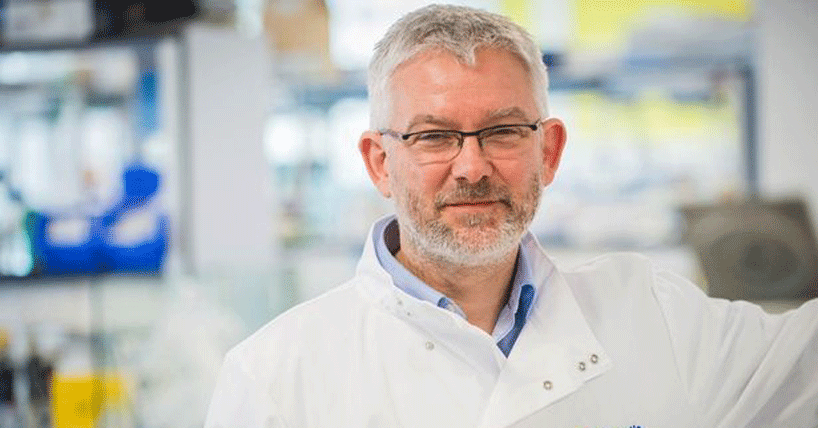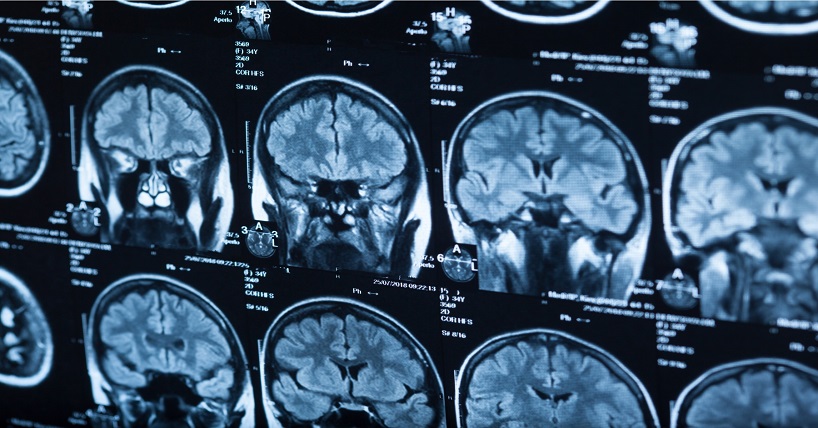Scientists targeting high-grade childhood brain tumour.
New research led by experts at Newcastle University is targeting high-grade childhood brain tumours.
4 October 2021
New research led by experts at Newcastle University is targeting high-grade childhood brain tumour.
The INSTINCT-MB research project, led by Newcastle University, will aim to develop better and more effective treatments for medulloblastoma, a disease which results in approximately 30% of childhood sufferers dying.
High-risk paediatric brain tumours are the leading cause of childhood cancer death. Whilst many advances have been made in treating the most common childhood brain tumours, current treatments still fail in a proportion of cases.
Sadly, many children who do survive brain tumours are often left with severe, life-limiting disabilities as a result of the tumour and the aggressive treatments that are needed to save their lives.
New therapies needed.
One of the major specific challenges in childhood cancer is Group 3 medulloblastomas driven by the presence of a gene called MYC. This tumour group occurs almost exclusively in young children and is essentially incurable, contributing significantly to overall childhood cancer death rates.
Advances in standard treatments such as chemotherapy and radiotherapy have helped to improve levels of survival overall but are not specific to tumour sub-types, and are ineffective against MYC-Group3 tumours. New therapies are therefore urgently needed to improve the outlook for children with high-risk medulloblastoma.
The INSTINCT-MB project will seek to develop new treatments for Group 3 medulloblastoma, using new drugs and promising new immunotherapies known as CAR-T cell therapies.
With the recent development of these new, targeted, therapies, there is a substantial opportunity to eliminate Group 3 medulloblastoma tumours. This type of tumour often has upregulated copies of the MYC gene which triggers rapid disease growth and often results in treatment failure.
Tragically, fewer than 5% of children survive this disease. INSTINCT-MB researchers have identified potential drugs to target the MYC gene and have also pioneered promising CAR-T cell therapies to help the immune system destroy cancer cells. CAR-T cell therapy reprograms a child’s immune cells to identify and attack cancer, without damaging healthy cells.
Led by Professor Steve Clifford, from Newcastle University Centre for Cancer, the research project will aim to identify and develop effective treatments against Group 3 medulloblastoma, combining different drugs alongside CAR-T cell therapies. The research project will be supported by the INSTINCT research network with UCL Institute of Child Health and The Institute of Cancer Research.
Professor Clifford, Principal Investigator of the INSTINCT network, said: “We urgently need all-new treatment approaches for childhood cancer types with the poorest prognosis. By bringing together the essential network of world-leading experts necessary to develop such approaches targeted specifically against tumour biology and bring them to the clinic, we aim to bring about a step-change in the treatment and outlook for these patients.”
The research project is being co-funded through a collaboration of three charities: Children with Cancer UK, Blue Skye Thinking and Little Hero. The funding structure of the INSTINCT-MB project aims to strengthen collaboration and funding across the childhood cancer community. The formation of this partnership represents a strategic commitment to invest in brain tumour research, tackling diseases which still carry a devastating prognosis.
Children with Cancer UK has a long-standing commitment to fund brain tumour research to accelerate scientific discoveries to clinical translation of new treatments and better outcomes for children. Since 2013, the charity has funded almost £1.5 million towards the original INSTINCT programme led by Professor Clifford.

"Progressive science"
Both Blue Skye Thinking and Little Hero were formed by families in the memory of their lost sons in their battle against medulloblastoma and it is the first time that they have co-funded research with Children with Cancer UK.
Speaking on behalf of Children with Cancer UK, Nick Goulden, Trustee said: “The INSTINCT-MB project is an example of the type of groundbreaking work that Children with Cancer UK, funds year after year. Thanks to the hard work of our fundraisers, researchers such as Professor Clifford and the team are discovering more about how brain tumours develop, with the discoveries and understanding leading to the development of kinder, more effective treatments. Through funding research such as INSTINCT, we hope to ultimately see a world where every child survives cancer, with no side effects.
Sally Hall, a Trustee of Blue Skye Thinking, said: "My son Skye’s goodness shone through and was incandescently bright in contrast to this horrid disease, and subsequent side effects of his treatment. Despite being 'cured', he soon became paralysed from the neck down and was diagnosed with radio-chemo neurotoxicity which had been brought on by the therapies he had endured and tragically died soon after.
“A more personalised and targeted treatment approach that Professor Clifford and his ground-breaking team of researchers are offering through INSTINCT, is an incredible feat in progressive science, which elicits significant hope for children of the future."
Press release adapted with thanks to Children with Cancer UK.
